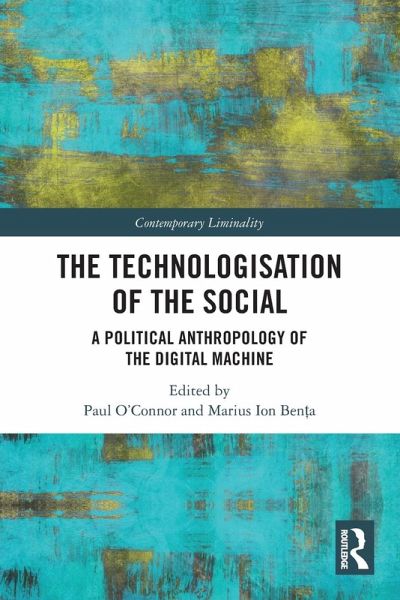
The Technologisation of the Social
A Political Anthropology of the Digital Machine
Herausgegeben: O'Connor, Paul; Benta, Marius Ion
Versandkostenfrei!
Versandfertig in 6-10 Tagen
45,99 €
inkl. MwSt.
Weitere Ausgaben:

PAYBACK Punkte
23 °P sammeln!
In an era of digital revolution, artificial intelligence, big data and augmented reality, technology has shifted from being a tool of communication to a primary medium of experience and sociality. Some of the most basic human capacities are increasingly being outsourced to machines and we increasingly experience and interpret the world through digital interfaces, with machines becoming ever more 'social' beings. Social interaction and human perception are being reshaped in unprecedented ways. This book explores this technologisation of the social and the attendant penetration of permanent limi...
In an era of digital revolution, artificial intelligence, big data and augmented reality, technology has shifted from being a tool of communication to a primary medium of experience and sociality. Some of the most basic human capacities are increasingly being outsourced to machines and we increasingly experience and interpret the world through digital interfaces, with machines becoming ever more 'social' beings. Social interaction and human perception are being reshaped in unprecedented ways. This book explores this technologisation of the social and the attendant penetration of permanent liminality into those aspects of the lifeworld where individuals had previously sought some kind of stability and meaning. Through a historical and anthropological examination of this phenomenon, it problematises the underlying logic of limitless technological expansion and our increasing inability to imagine either ourselves or our world in other than technological terms. Drawing on a variety of concepts from political anthropology, including liminality, the trickster, imitation, schismogenesis, participation, and the void, it interrogates the contemporary technological revolution in a manner that will be of interest to sociologists, social and anthropological theorists and scholars of science and technology studies with interests in the digital transformation of social life.




